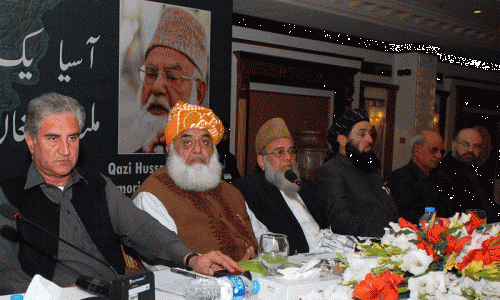Religious leaders oppose use of force against militants


LAHORE: The heads of about 30 religious parties and groups have opposed the use of force against militants in case the ongoing peace talks between the government and the banned Tehreek-i-Taliban Pakistan end in failure.
The demand came in the wake of perception that a military operation would be the ultimate choice if the government and the Taliban failed to reach an agreement.
Prime Minister Nawaz Sharif, Pakistan Tehreek-i-Insaf chairman Imran Khan and other mainstream leaders have agreed to give peace a chance before considering the option of an operation to flush out militants, especially from North Waziristan.
But the clerics, in a meeting chaired by the chief of the Taliban’s negotiating committee, Maulana Samiul Haq, unanimously opposed launching a military operation against the Taliban in case there was no breakthrough in the talks between the government and TTP teams. “The government must not use force in case the peace talks fail. Ceasefire is a prerequisite to the success of the talks,” Maulana Haq said while reading a joint statement after the Ulema and Mashaikh convention on the peace talks.
He said the big powers had witnessed the outcome of the war in Afghanistan. “A military operation will only lead the country to further destruction.”
The statement says: “The Ulema belonging to all schools of thought fully support the peace dialogue between the government and the Taliban and appeal to both parties to observe restraint and let peace prevail. “Military operation may lead to endless bloodshed in the country and also threaten its existence.”












































